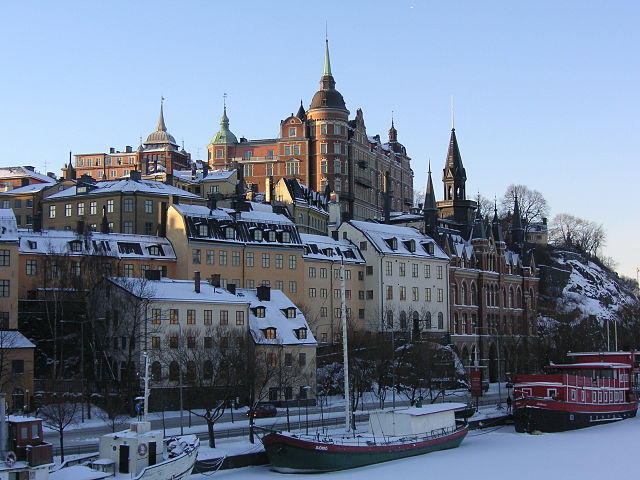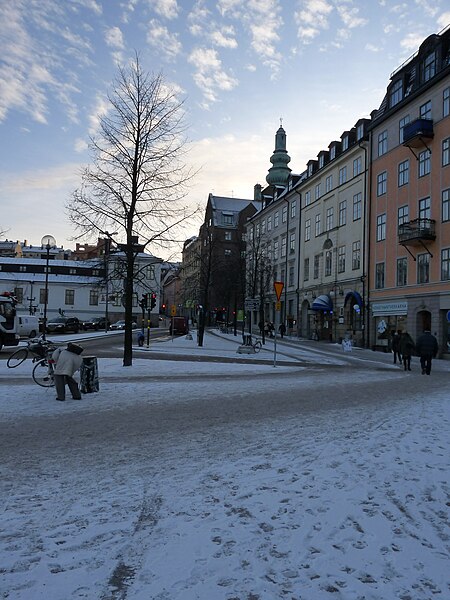
Earlier this month, it was announced that the Nobel Prize in Literature 2017 would go to Kazuo Ishiguro, an author born in Nagasaki, Japan. Now a citizen of the United Kingdom, Ishiguro was honored, according to the Nobel Prize Committee, because
in novels of great emotional force, [he] has uncovered the abyss beneath our illusory sense of connection with the world.
The Thammasat University Libraries own some books by and about Kazuo Ishiguro. These may be found on the fiction stacks of the Puey Ungphakorn Library, Rangsit Campus and the Pridi Banomyong Library, Tha Prachan Campus. Others may be requested from the Book Bank, Rangsit Campus. As all students and ajarns know, the Nobel Prize is a group of annual awards in different categories, given in recognition of academic, cultural and scientific advances. The awards are named after the Swedish inventor Alfred Nobel, who established the prizes in 1895. The prizes in Chemistry, Literature, Peace, Physics and Physiology or Medicine were first given in 1901. Between 1901 and 2016, the Nobel Prizes and the Nobel Memorial Prize in Economic Sciences were awarded 579 times to 911 people and organisations. The prize ceremonies take place each year in Stockholm, Sweden, except for the peace prize, which is given in Oslo, Norway. The prizes are considered very prestigious, and include prize money of $1,110,000 USD or 36,951,900 Thai baht. Anyone working in the subjects of literature, medicine, physics, chemistry, peace, and economics is aware that the Nobel Prize is thought of as the most prestigious award in the field.

Although Thai researchers and writers have yet to be recognized by the Nobel Committee, Thailand has nevertheless participated in the nomination and awards process. On the website of the Nobel Committee in Stockholm, we see that two nominations were made from Thailand for the Nobel Peace Prize. Both had to do with the rights and welfare of children. The first, in 1928, was made by Prince Thēwawongwarōthai (1883-1943), a grandson of HM King Mongkut (Rama IV). Also known as HH Prince Traidos Prabandh, he served as Siamese Minister of Foreign Affairs. As such, he was involved in international matters. So in 1928, HH Prince Traidos nominated for the Nobel Peace Prize Sir Robert Stephenson Smyth Baden-Powell. As all Thais interested in scouting know, Lieutenant General Baden-Powell (1857 –1941) was a British Army officer and author of Scouting for Boys, an inspiration for the Scout Movement. Baden-Powell was also founder and first Chief Scout of the Boy Scouts Association and founder of the Girl Guides. The TU Libraries own books about his life and accomplishments. According to the nomination by HH Prince Traidos:
Baden-Powell founded the Boy Scouts movement in 1907 and he organized the movement internationally. He and his sister Agnes founded the Girl Guides in 1910 (in the US Girls Scouts from 1912). In 1916 Baden-Powell organized the Wolf Cubs in Great Britain (Cub Scouts in the US) for boys under the age of 11. The nominators emphasized the brotherly mentality and the non-militaristic character of the movement.
Today, the Scout and Guide movement in Thailand is served by the Girl Guides Association of Thailand, member of the World Association of Girl Guides and Girl Scouts and the National Scout Organization of Thailand, member of the World Organization of the Scout Movement. The National Scout Organization of Thailand (NSOT or Khana Luksuea Haeng Chat) is the national scouting organization of Thailand. Scouting was established in Thailand in 1911 by HM King Rama VI, among the charter members of the World Organization of the Scout Movement in 1922. It is regulated by the Scouting Act, BE 2551 (2008). The organization has 828,248 members as of 2013, and is open to boys and girls. The Girl Guides Association of Thailand (GGAT) is the national Guiding organization of Thailand. It served 28,030 members as of 2003. Founded in 1957, the girls-only organization became a full member of the World Association of Girl Guides and Girl Scouts in 1963. An unofficial school website with information about scouting in Thailand informs us that the purpose of the activities are to teach
spiritual values, loyalty to country, promotion of world brotherhood, helping others, the practice of the Scout oaths and laws, voluntary participation in community services and various programme activities. These fundamentals are met through the use of the patrol method and the proficiency badge scheme.

Since Scouting is part of school curriculum, students work to earn proficiency badges, learn knotting, cook food, practice drilling, play games, and sing songs. They take exams on these skills, and also help with national development and public services, including cleaning public areas, first aid, traffic control, disaster-relief, summer public services and environmental and natural conservation. The Scout Promise:
On my honour I promise that I will be loyal to the Nation, the Religion and the King; help other people at all times; and obey the Scout Law.
Clearly HH Prince Traidos was convinced of the importance of Baden-Powell’s contribution internationally and in the Kingdom. He was not alone, for in 1928, nine other prominent personalities from Switzerland, the UK, Japan, and other nations nominated Baden-Powell for the same award. Even so, he ultimately never received it.
The other nomination from Thailand in the database of the Nobel Prize Committee occurred in 1963. In that year, the United Nations Children´s Fund (UNICEF) was nominated for the Nobel Peace Prize for helping the lives of children all over the world. The nomination was by HRH Prince Vanna Vaidhayakara, Prince of Naradhip Bhongseprabhan, known in the West as Wan Waithayakon (1891-1976), a Thai diplomat. HRH Prince Wan Waithayakon was elected President of the Eleventh Session of the United Nations General Assembly (1956-1957), while serving as Thailand’s Permanent Representative to the United Nations. Like HH Prince Traidos Prabandh, he was also a grandson of King Rama IV. In 1963, other nominees from different European countries also suggested that UNICEF was worthy of receiving the Nobel Peace Prize. In 1965, the prize was indeed awarded to UNICEF for its
promotion of brotherhood among the nations [as] a peace-factor of great importance.
As the website of UNICEF Thailand observes, despite economic advances in the Kingdom,
huge disparities remain, and the benefits of economic progress have not been equally shared by all children in Thailand. This is particularly true for the children of ethnic minorities, migrants, refugees and the very poor. A large number of children still face a number of obstacles to claiming their rights to protection and development. Many children still do not complete a primary school education, and many more do not go on to secondary school. A disproportionate number are from minority groups in remote or very poor areas, often along Thailand’s borders with Cambodia, Lao PDR, Malaysia and Myanmar. Children in these groups also account for the vast majority of children who are not registered at birth. Without a birth certificate, their rights to an education, healthcare and other services can be denied.
As these challenges continue to be confronted by UNICEF Thailand, we can appreciate HRH Prince Vanna Vaidhayakara’s initiative over a half-century ago to recognize this important organization and its work.
(All images courtesy of Wikimedia Commons)

